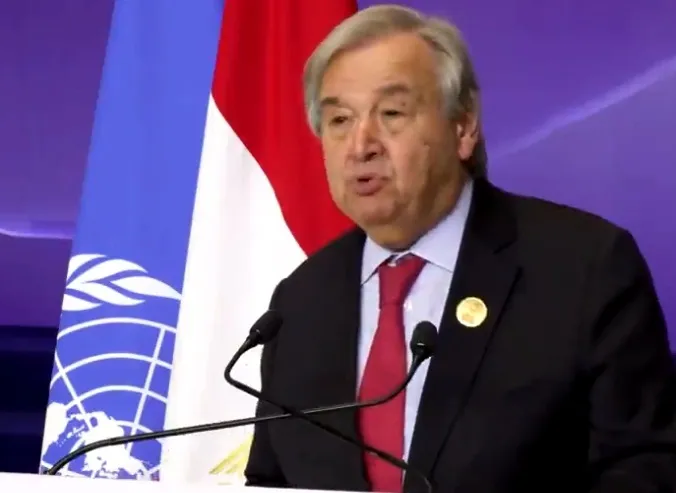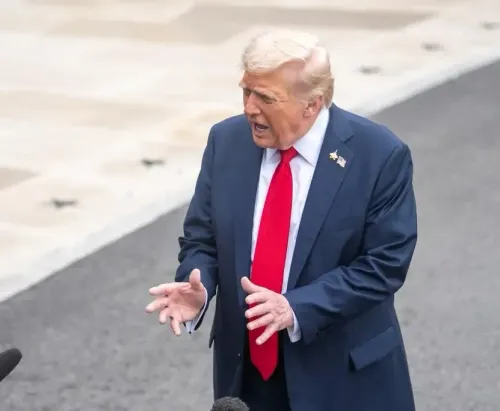Is the UN Charter an A-La-Carte Menu?

Synopsis
Key Takeaways
- The UN Charter is not optional; it is fundamental to global relations.
- Violations of the charter's principles are increasingly common.
- Upholding the charter is essential for promoting peace and justice.
- Guterres calls for member states to recommit to international law.
- The charter has historically helped prevent major conflicts like a third world war.
United Nations, June 27 (NationPress) UN Secretary-General Antonio Guterres criticized the selective application of the UN Charter, asserting that it is not a buffet of options.
"At present, we are witnessing violations of the purposes and principles of the UN Charter more than ever before: the threat or use of force against sovereign states; breaches of international law, including humanitarian and human rights law; attacks on civilians and civilian infrastructure; the manipulation of essential resources like food and water; and the undermining of human rights," he remarked during a UN General Assembly event commemorating the 80th anniversary of the UN Charter signing.
Guterres continued, "We observe a recurring pattern: adherence when convenient, neglect when it is not. The UN Charter is not optional. It is not a buffet. It is fundamental to international relations. We cannot and must not accept violations of its core principles as normal practice."
He described the UN Charter as a symbol of hope and the cornerstone for global collaboration towards a better future. "This charter has provided us with the means to alter fates, save lives, and instill hope in the most desperate areas of the globe. We can directly link the establishment of the United Nations to the avoidance of a third world war," he emphasized.
Guterres reiterated that upholding the principles and purposes of the UN Charter is a perpetual commitment, highlighting the urgent need to honor and recommit to international law—both in words and actions, as reported by the Xinhua news agency.
"On this momentous day, I call upon all member states to embody the spirit and letter of the charter, fulfilling the obligations it entails and striving towards the future it calls us to create—for peace, for justice, for advancement, for all humanity," he urged.
Adopted on June 25, 1945, at the San Francisco Conference, the UN Charter represents the foundational treaty of the global organization, finalized with signatures from delegates the following day.









